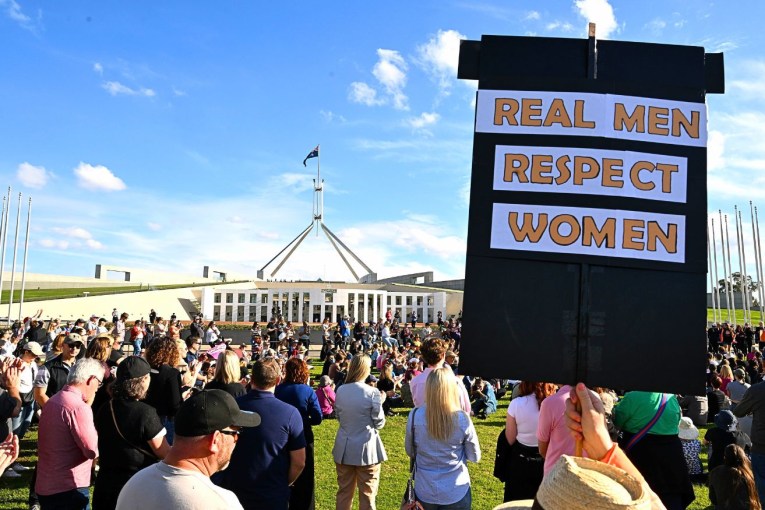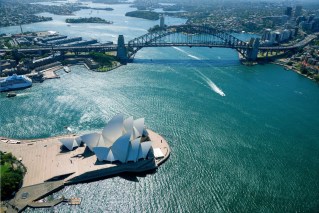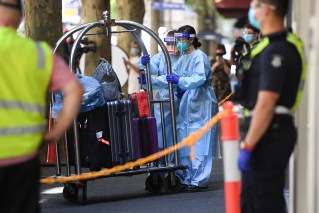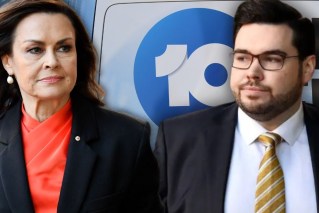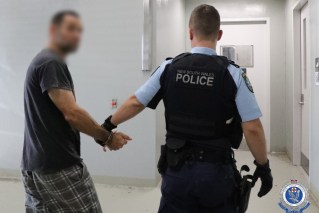When pills stopped working, Andrew Robb looked to magic mushroom therapy
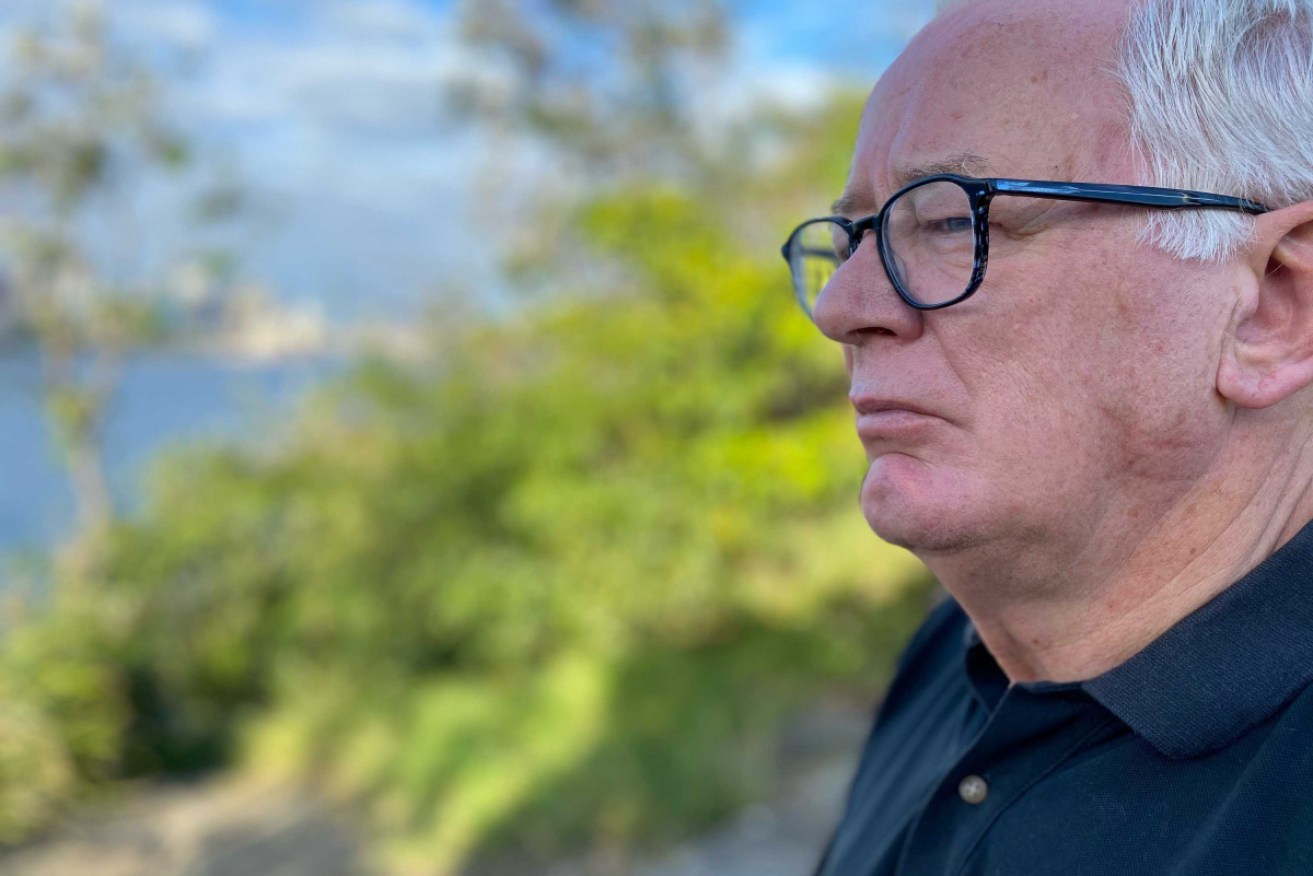
Andrew Robb says "old fogies" are trying to block the use of psychedelic therapy in Australia. Photo: ABC News/Michael Vincent
When his daily pile of antidepressant pills stopped working, former Liberal Party director and trade minister Andrew Robb began researching psychedelic therapy as an option to send his depression into remission.
“In wanting to do it myself, take advantage of it, I have tried to explore what it actually does. And there’s no doubt that it is quite well agreed that it increases the activity in the brain,” Mr Robb told 7.30.
The irony of a conservative advocating currently illegal “shroom” or ecstasy therapy is not lost on him.
“I understand that because it had such a bad rap in the 60s, the misuse of these drugs for recreational purposes had a very bad effect,” he said.
Mr Robb is advocating for “limited amounts [to be] available for the medical profession to use in a controlled medical situation to alleviate mental health diseases”.
He is the latest prominent Australian to support the move.
The Therapeutic Goods Administration is currently considering whether to allow psychedelics like magic mushrooms (active ingredient psilocybin) or ecstasy (MDMA) to be used in a psychiatric clinic setting. The College of Psychiatrists is opposed.
Diurnal depression ‘sucks the joy out of life’

Andrew Robb says he relied on adrenaline to get him through morning media interviews when he was a politician. Photo: ABC/AAP/Mick Tsikas
For more than 50 years, Mr Robb has suffered from diurnal depression which, he said, “means you go to sleep taking on the world, and you wake up deeply depressed”.
“It’s very hard to accept it. In fact, I didn’t accept it for myself for decades that I had a depressive condition. I kept putting it down to all sorts of other things,” Mr Robb told 7.30.
“It’s very difficult to explain the nature of depression. It defies logic. In fact, what it does do though, is it sucks the joy of life out of the individual. You see everything in a negative fashion.
“It was hard on my family too, because I was a non-event for the first few hours a day. In fact, my wife used to say that to people. We don’t talk about the state of our marriage before nine o’clock.”
Mr Robb used to have to do morning interviews on radio and television as part of his job – getting by on the rush of adrenaline as his “antidote”.
Now he is on the board of a charity that wants to try something different.
Mind Medicine Australia advocates for psychedelic therapy, which is currently available in Canada, the US, Switzerland and Israel.
“What we’ve seen is over 150 clinical trials take place. In the last 20 years, we’ve seen over 3000 people, patients, involved in these trials, and the results are spectacular,” Mr Robb said.
“They’re getting up to 60 to 80 per cent remission. This is not relief, this is remission.
“Now, those sort of results are not possible [with current medications] … At best, 30 per cent of people in Australia will respond to the antidepressants. So you get 70 per cent who are not responding. And we need to have alternatives.”
Top psychiatrists opposed

The Royal Australian and New Zealand College of Psychiatrists is opposed to psychedelic therapy. Photo: ABC News
National peak body the Royal Australian and New Zealand College of Psychiatrists has asked the TGA to block the widespread use of psychedelic therapy from proceeding because not enough research has been done.
“Well, we’re not denying the alternatives. We’re saying that we need to do the science to get the safety and get the efficacy to make sure that that’s right,” college president John Allan told 7.30.
“The history of psychiatry is littered with things that were great white hopes or great promises, that have actually turned out to not be so.
“There aren’t any countries that I would think have reasonable rules that actually have gone to this level of detail of deregulation.
“So I think it’s really important to note that clinics that might be operating elsewhere are probably operating under an experimental rule or outside of those particular rules.”
The TGA will decide in April whether to allow psilocybin and MDMA to be downgraded from schedule 9 (prohibited substance) to schedule 8 (controlled drug) – which, in an interim decision earlier this year, it appeared to reject.

Royal Australian and New Zealand College of Psychiatrists president John Allan says more research needs to be done into psychedelic therapy. Photo: ABC News
“There is a high risk of diversion for misuse, even in conjunction with schedule 8 controls,” the TGA’s interim report declared.
“Drugs actually cause a lot of problems. That is a big problem facing prescribers at the moment, a big problem facing addiction medicine psychiatrists around what to do about that incredible misuse of those drugs that are on S8,” Dr Allan said.
“What I’m trying to say is, I don’t think we need to set up another one of those [drugs] just yet. So we really need to be really careful,” Dr Allan said.
Mr Robb’s response is undiplomatic: “They’re a lot of old fogies who are so deeply conservative. I think they’ve been bitten a few times when they’ve backed other treatments that haven’t worked out.”
To be clear, Mr Robb remains deeply opposed to recreational use for magic mushrooms and MDMA, even if he advocates them for medicinal purposes.
“But just like with cannabis, it still remains, you know, illegal for recreational purposes. But cannabis has been approved for controlled medical use,” he said.
“There are hundreds of thousands of Australians who today could be taking advantage of these drugs to help their therapy.”
